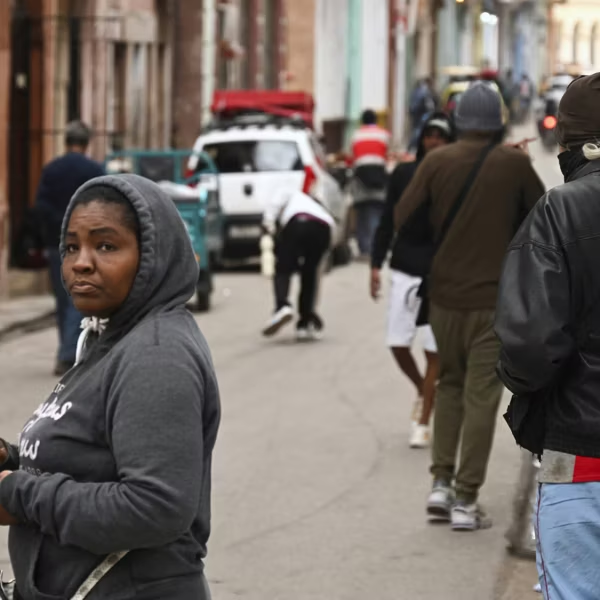Report Details How US-Backed Coup Unleashed Wave of Abuses in Honduras
Survey by 54 civil society organizations and social movements presented to UN as alternative to official state report
The U.S.-backed Honduran coup ushered in a wave of neoliberal policies that have systematically violated the economic, cultural, and social rights of the nation's Indigenous people, women, and farmers, while leaving activists and rights defenders--such as the late Berta Caceres--vulnerable to criminalization and violence.
Such were the findings of a new report, prepared by a coalition of 54 Honduran social movements and rights organizations and presented as an alternative to the official government report submitted to the United Nations Committee on Economic, Social and Cultural Rights, which began its 58th session in Geneva on Monday.
"The coup d'etat in 2009 meant an imminent reversal of human rights and a serious blow to the country's institutions," states the report (pdf), which is available in Spanish.
While the study does not single out international governments that supported the ouster of the country's democratically elected President Manuel Zelaya, it comes as former U.S. Secretary of State Hillary Clinton prepares to assume the role of Democratic nominee for president. Clinton's role in the coup has come under increased scrutiny since the assassination of Caceres, a Honduran Indigenous rights and environmental activist, in March.
The survey of civil society and regional organizations found that the right-wing government's economic agenda has helped advance extractive development projects while ignoring the rights of those who hold claim to the land.
"According to the report numerous concessions have been granted to hydroelectric and mining projects in areas which indigenous peoples consider sacred or vital to ensure the subsistence of local communities," said global anti-hunger group FIAN International, which published the study.
As a result, peasant communities are "increasingly facing forced evictions" while the individuals and organizations that voice opposition are met with "violence, intimidation, and criminalization," the study found--such as in the case of Caceres, who was murdered by Honduran military officials and employees of the hydroelectric dam project that she opposed.
"This demonstrates that the mechanisms available in Honduras for their protection do not suffice. The overwhelming majority of the cases go unpunished," the report reads.
What's more, this violence has particularly targeted women--including through structural violence such as restriction of their civil, political, economic, social, and cultural rights. "The climate of fear in both the public and private sphere, and the lack of accountability for human rights violations against women is the rule, not the exception," the report states.
"All this happens within a context of extreme poverty and imbalanced wealth distribution that leads many to go malnourished," the report continues. According to FIAN, 12.1 percent of the Honduran population is undernourished while a full 95 percent of Indigenous children under 14 suffer from malnutrition.
Coming full circle, the report notes that this cycle of violence and extreme poverty is driving migrants to seek asylum in the United States, where they are often met with imprisonment and deportation.
An Urgent Message From Our Co-Founder
Dear Common Dreams reader, The U.S. is on a fast track to authoritarianism like nothing I've ever seen. Meanwhile, corporate news outlets are utterly capitulating to Trump, twisting their coverage to avoid drawing his ire while lining up to stuff cash in his pockets. That's why I believe that Common Dreams is doing the best and most consequential reporting that we've ever done. Our small but mighty team is a progressive reporting powerhouse, covering the news every day that the corporate media never will. Our mission has always been simple: To inform. To inspire. And to ignite change for the common good. Now here's the key piece that I want all our readers to understand: None of this would be possible without your financial support. That's not just some fundraising cliche. It's the absolute and literal truth. We don't accept corporate advertising and never will. We don't have a paywall because we don't think people should be blocked from critical news based on their ability to pay. Everything we do is funded by the donations of readers like you. Will you donate now to help power the nonprofit, independent reporting of Common Dreams? Thank you for being a vital member of our community. Together, we can keep independent journalism alive when it’s needed most. - Craig Brown, Co-founder |
The U.S.-backed Honduran coup ushered in a wave of neoliberal policies that have systematically violated the economic, cultural, and social rights of the nation's Indigenous people, women, and farmers, while leaving activists and rights defenders--such as the late Berta Caceres--vulnerable to criminalization and violence.
Such were the findings of a new report, prepared by a coalition of 54 Honduran social movements and rights organizations and presented as an alternative to the official government report submitted to the United Nations Committee on Economic, Social and Cultural Rights, which began its 58th session in Geneva on Monday.
"The coup d'etat in 2009 meant an imminent reversal of human rights and a serious blow to the country's institutions," states the report (pdf), which is available in Spanish.
While the study does not single out international governments that supported the ouster of the country's democratically elected President Manuel Zelaya, it comes as former U.S. Secretary of State Hillary Clinton prepares to assume the role of Democratic nominee for president. Clinton's role in the coup has come under increased scrutiny since the assassination of Caceres, a Honduran Indigenous rights and environmental activist, in March.
The survey of civil society and regional organizations found that the right-wing government's economic agenda has helped advance extractive development projects while ignoring the rights of those who hold claim to the land.
"According to the report numerous concessions have been granted to hydroelectric and mining projects in areas which indigenous peoples consider sacred or vital to ensure the subsistence of local communities," said global anti-hunger group FIAN International, which published the study.
As a result, peasant communities are "increasingly facing forced evictions" while the individuals and organizations that voice opposition are met with "violence, intimidation, and criminalization," the study found--such as in the case of Caceres, who was murdered by Honduran military officials and employees of the hydroelectric dam project that she opposed.
"This demonstrates that the mechanisms available in Honduras for their protection do not suffice. The overwhelming majority of the cases go unpunished," the report reads.
What's more, this violence has particularly targeted women--including through structural violence such as restriction of their civil, political, economic, social, and cultural rights. "The climate of fear in both the public and private sphere, and the lack of accountability for human rights violations against women is the rule, not the exception," the report states.
"All this happens within a context of extreme poverty and imbalanced wealth distribution that leads many to go malnourished," the report continues. According to FIAN, 12.1 percent of the Honduran population is undernourished while a full 95 percent of Indigenous children under 14 suffer from malnutrition.
Coming full circle, the report notes that this cycle of violence and extreme poverty is driving migrants to seek asylum in the United States, where they are often met with imprisonment and deportation.
The U.S.-backed Honduran coup ushered in a wave of neoliberal policies that have systematically violated the economic, cultural, and social rights of the nation's Indigenous people, women, and farmers, while leaving activists and rights defenders--such as the late Berta Caceres--vulnerable to criminalization and violence.
Such were the findings of a new report, prepared by a coalition of 54 Honduran social movements and rights organizations and presented as an alternative to the official government report submitted to the United Nations Committee on Economic, Social and Cultural Rights, which began its 58th session in Geneva on Monday.
"The coup d'etat in 2009 meant an imminent reversal of human rights and a serious blow to the country's institutions," states the report (pdf), which is available in Spanish.
While the study does not single out international governments that supported the ouster of the country's democratically elected President Manuel Zelaya, it comes as former U.S. Secretary of State Hillary Clinton prepares to assume the role of Democratic nominee for president. Clinton's role in the coup has come under increased scrutiny since the assassination of Caceres, a Honduran Indigenous rights and environmental activist, in March.
The survey of civil society and regional organizations found that the right-wing government's economic agenda has helped advance extractive development projects while ignoring the rights of those who hold claim to the land.
"According to the report numerous concessions have been granted to hydroelectric and mining projects in areas which indigenous peoples consider sacred or vital to ensure the subsistence of local communities," said global anti-hunger group FIAN International, which published the study.
As a result, peasant communities are "increasingly facing forced evictions" while the individuals and organizations that voice opposition are met with "violence, intimidation, and criminalization," the study found--such as in the case of Caceres, who was murdered by Honduran military officials and employees of the hydroelectric dam project that she opposed.
"This demonstrates that the mechanisms available in Honduras for their protection do not suffice. The overwhelming majority of the cases go unpunished," the report reads.
What's more, this violence has particularly targeted women--including through structural violence such as restriction of their civil, political, economic, social, and cultural rights. "The climate of fear in both the public and private sphere, and the lack of accountability for human rights violations against women is the rule, not the exception," the report states.
"All this happens within a context of extreme poverty and imbalanced wealth distribution that leads many to go malnourished," the report continues. According to FIAN, 12.1 percent of the Honduran population is undernourished while a full 95 percent of Indigenous children under 14 suffer from malnutrition.
Coming full circle, the report notes that this cycle of violence and extreme poverty is driving migrants to seek asylum in the United States, where they are often met with imprisonment and deportation.

